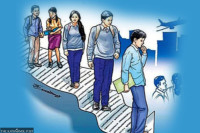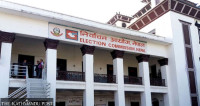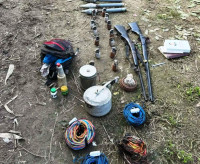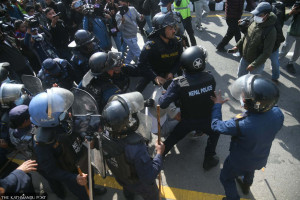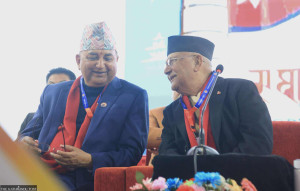National
Nepal fares well in trafficking report
Nepal has been placed in the second tier of the US Department of State’s annual Trafficking in Persons (TIP) report, signifying Nepal’s satisfactory efforts to combat modern-day slavery.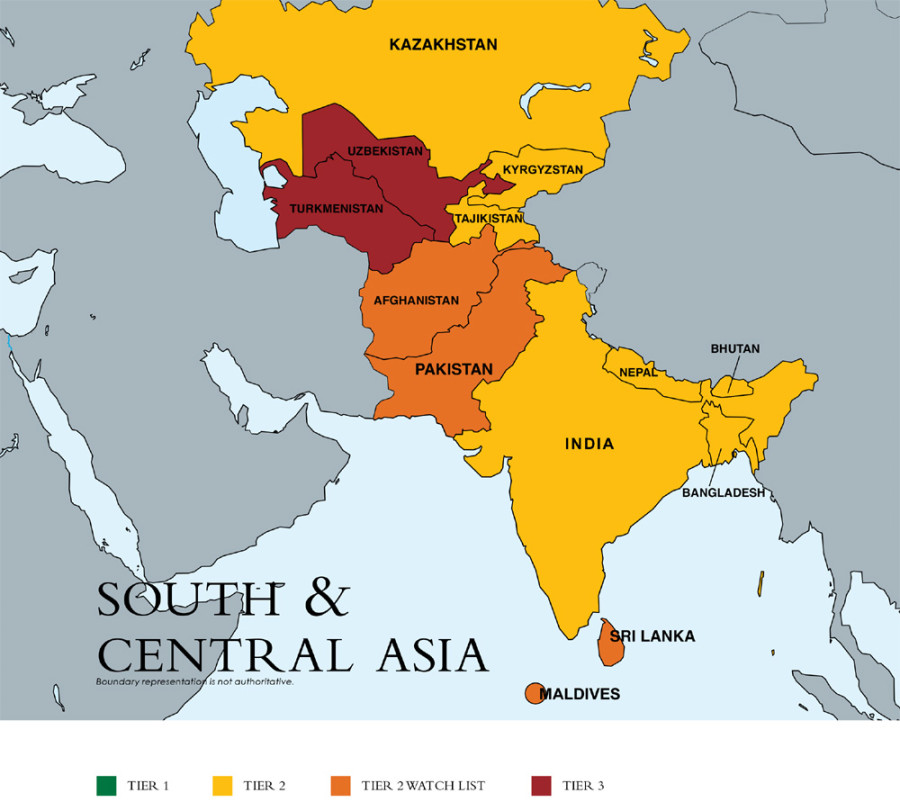
Nepal has been placed in the second tier of the US Department of State’s annual Trafficking in Persons (TIP) report, signifying Nepal’s satisfactory efforts to combat modern-day slavery.
Nepal has been maintaining this status for the past seven years despite sporadic incidents of human trafficking and degrading treatment of workers, particularly women and children.
The TIP report, which assesses the legal framework and law enforcement of the countries from around the world on their efforts to combat human trafficking, has come as a relief for the government of Nepal given the national reports on human trafficking.
In April, the National Human Rights Commission released a report that claimed around 16,500 Nepalis, mostly unmarried women and children, were trafficked in the past two years.
It also claimed an increase in vulnerability to trafficking especially of women and children, by at least 20 percent after the earthquake last year.
“At least we have better law in place,” said Tek Narayan Kunwar, the Chitwan district judge who pioneered the implementation of the anti-trafficking law while maintaining a victim-centric approach. “And the rate of completion of cases related to human trafficking is higher than other criminal cases.”
The TIP report also states that Nepal government prosecuted alleged traffickers in 341 cases in a year even though 27 remained pending. At the district level, courts convicted 260 traffickers in the period, compared to 203 traffickers in the previous year, and acquitted the accused in 107 cases.
Arms, drugs and human trafficking are recognised as major organised crimes that directly affect public safety, health and economic stability in the transitional period.
The report assesses the situation in 190 countries. Nepal falls in the category alongside India, Japan and Kenya while mostly European and Latin American countries are categorised in Tier 1.
“We have a lot of things to do to make it to Tier 1 but we are in a relatively better position due to our law and its implementation,” said Kunwar, who was also honoured with the anti-trafficking hero title in 2014.
While releasing the report in New York on Wednesday, US Secretary of State John Kerry also honoured Superintendent of Police Kiran Bajracharya, chief of the Bhaktapur District Police Office, as this year’s anti-trafficking hero, for her persistent work “to investigate crimes against women and children, including human trafficking”. The US recognises eight TIP Report Heroes for their efforts to fight human trafficking in their home countries.
SP Bajracharya was recognised for her leadership in investigating cases of human trafficking in Nepal, her dedication to educating vulnerable groups about human trafficking, and her tenacity in enabling the prosecution of members of organised crime networks perpetrating trafficking.
The governments of countries that fully meet the Trafficking Victims Protection Act’s minimum standards for the elimination of trafficking.
The governments of countries that do not fully meet the TVPA’s minimum standards but are making significant efforts to meet those standards.
Countries whose governments do not fully meet the TVPA’s minimum standards, but are making significant efforts to meet those standards
The governments of countries that do not fully meet the TVPA’s minimum standards and are not making significant efforts to do so.




 7.12°C Kathmandu
7.12°C Kathmandu

%20(1).jpg&w=200&height=120)
